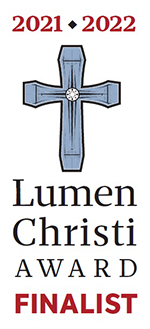
Pope Francis called mercy the “beating heart of the Gospel.” For centuries, the corporal works of mercy have provided people of faith with a road map for living out the virtue of mercy, such as feeding the hungry, giving drink to the thirsty and clothing the naked.
Catholic Extension Society has always maintained that vibrant Catholic faith communities can transform hearts, lives and even society.
Father Brian Oestreich and the communities he shepherds in the far northwestern corner of the Diocese of New Ulm, Minnesota, are an excellent example of what it means to be a transformative presence, using the corporal works of mercy as their guide.
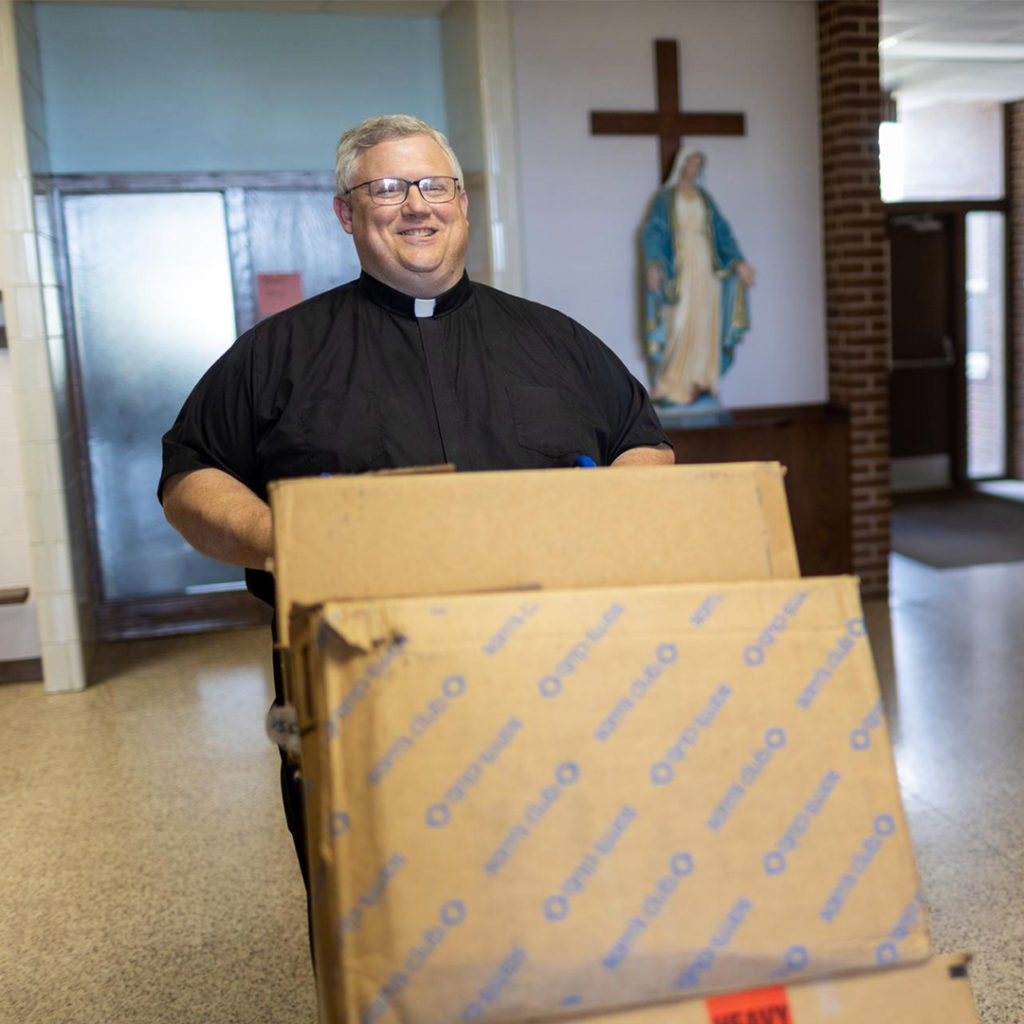
He is pastor of the Spirit of Life Area Faith Community, which encompasses four merged parishes on the western border of Minnesota and spans 50 miles from one end to the other.
Yet under Father Oestreich’s leadership, the parishes are united by their passion to live out their faith in the form of mercy.
Their works of mercy have grown each successive year, to the point that now they distribute tens of thousands of pounds of donated food to the hungry.
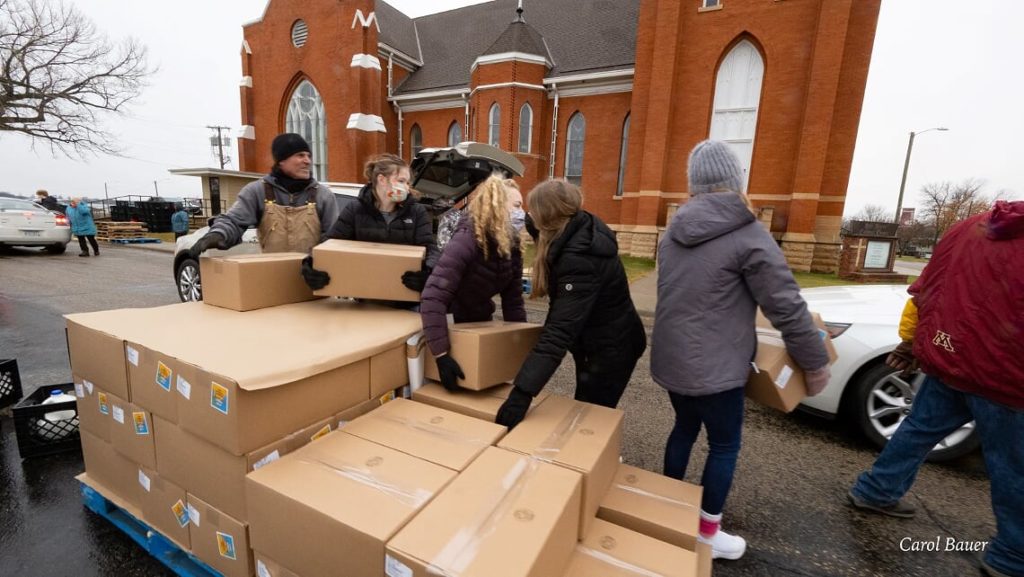
They provide clothing and basic living supplies to those living in poverty across four surrounding dioceses.
Mercy is not confined to just canonical boundaries.
According to Father Oestreich,
Christ is there, and we are called to do the corporal works of mercy no matter where, how or when. God gives us the ability, and hopefully we can respond to it.”
The poverty in rural Minnesota comes as a shock to many, including Father Oestreich. For more than 20 years he led service pilgrimages to Guatemala, but he says the living conditions in the counties he serves are oftentimes the same or worse.
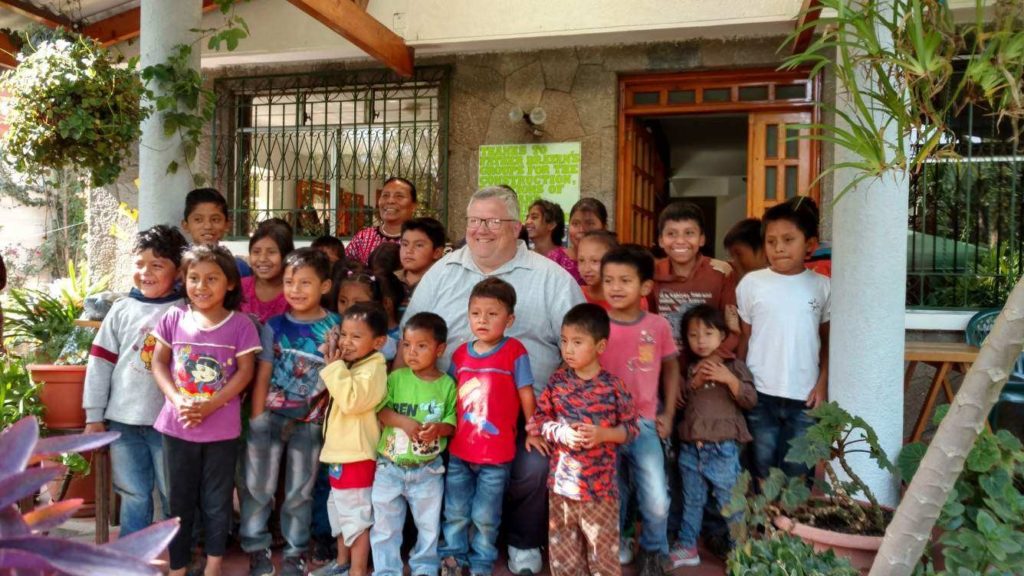
When he first arrived, he was appalled to see children on their way to school in wintertime without coats, mittens or hats. Father Oestreich also described how humbling it was to distribute a mattress to a pregnant woman on bed rest who had been sleeping on the floor.
Sources of inspiration
None of this work began with an elaborate plan. Rather, it has slowly evolved with the help of the Holy Spirit.
Father Oestreich is the son of hard-working Minnesota farmers. He was ordained a priest for the Diocese of New Ulm in 1993. Prior to entering the seminary, he had discerned a vocation with the Missionary Oblates of Mary Immaculate, a missionary religious congregation.
During those formative years he ministered to people living with AIDS and drug addictions. He learned that the poor, sick and outcast were not people he should fear, but rather people he was being called to embrace, like Christ taught.
Years later, as a young priest he encountered Mary Ann Larsen, a grandmother also from the Diocese of New Ulm who operated a food bank out of her garage. She received Catholic Extension Society’s Lumen Christi Award in 2003.
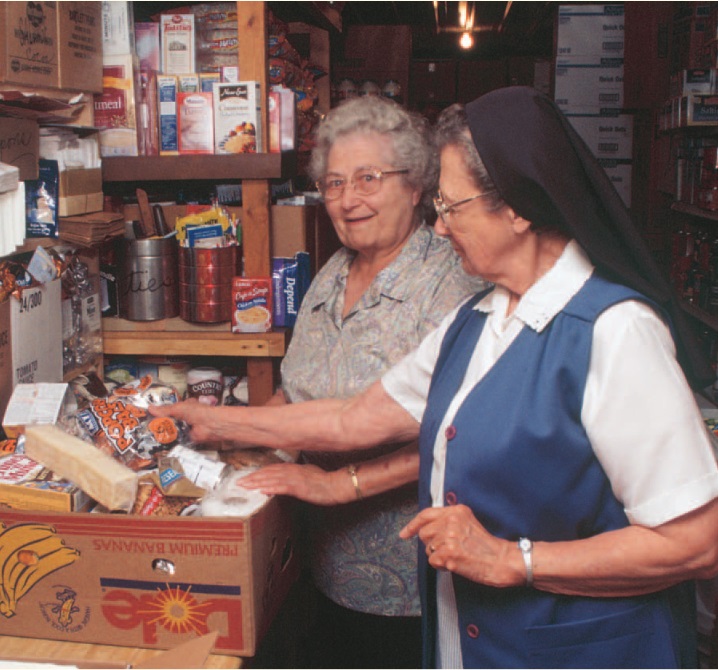
Inspired by her work, Father Oestreich decided to launch his first coat drive, and has since distributed more than 5,000 coats.
The food distribution program he leads today also began with a simple encounter: a phone call from a parishioner, Theresa Bly, asking what she should do with the extra baked goods she acquired through a friend at the grocery store.
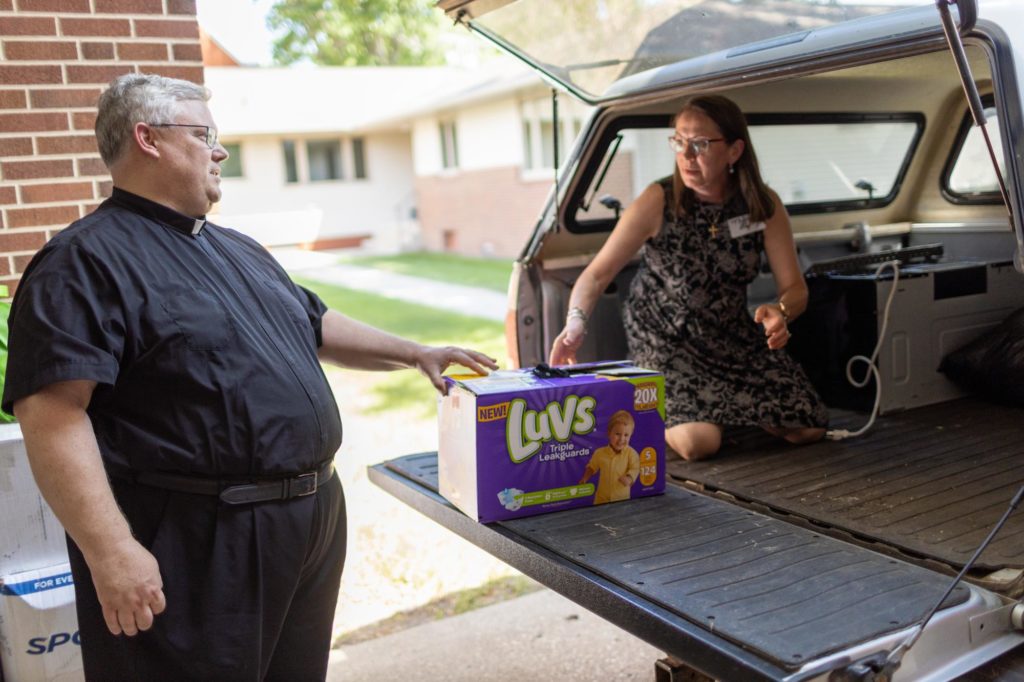
Another parishioner, Clark Wangler, had access to large amounts turkey products from the overstock at the processing plant where he works.
Now he and his growing team of volunteers distribute thousands of pounds of fresh, healthy food every month to anyone in need.
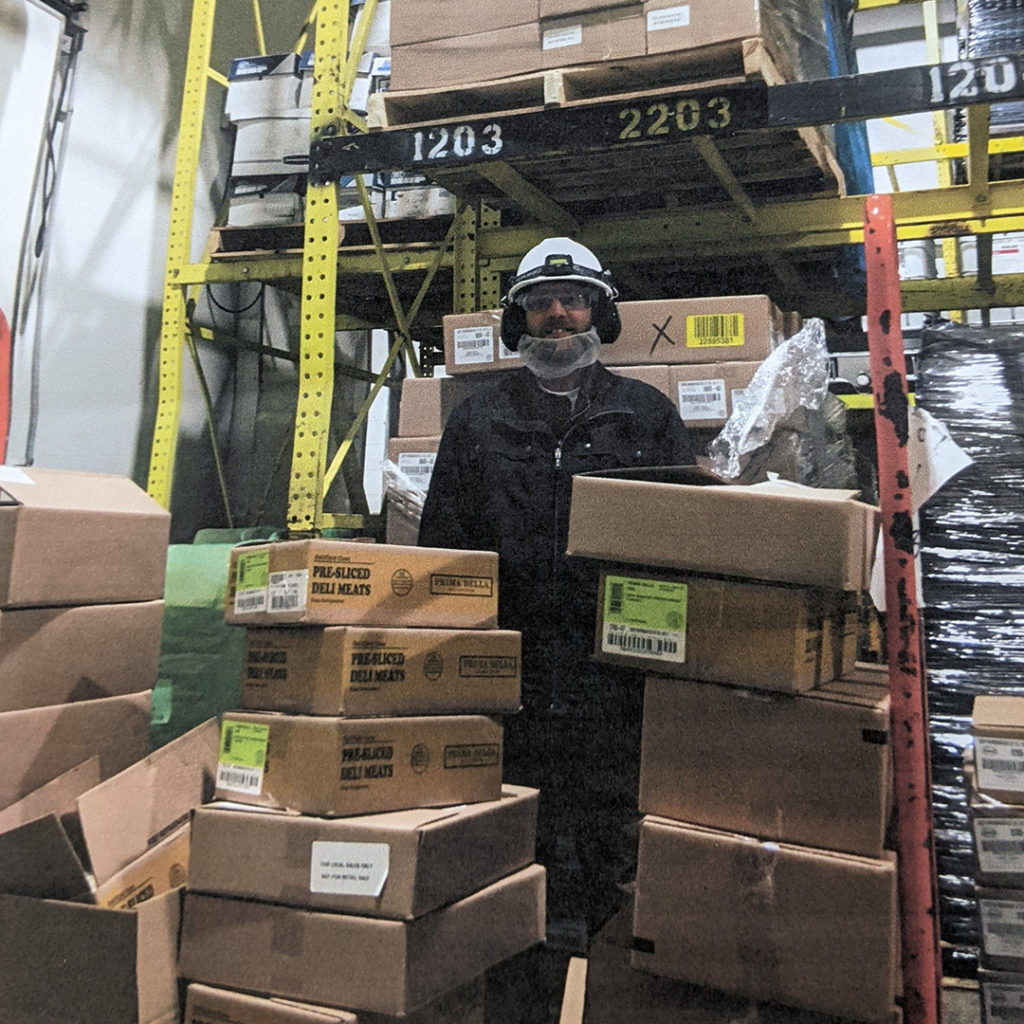
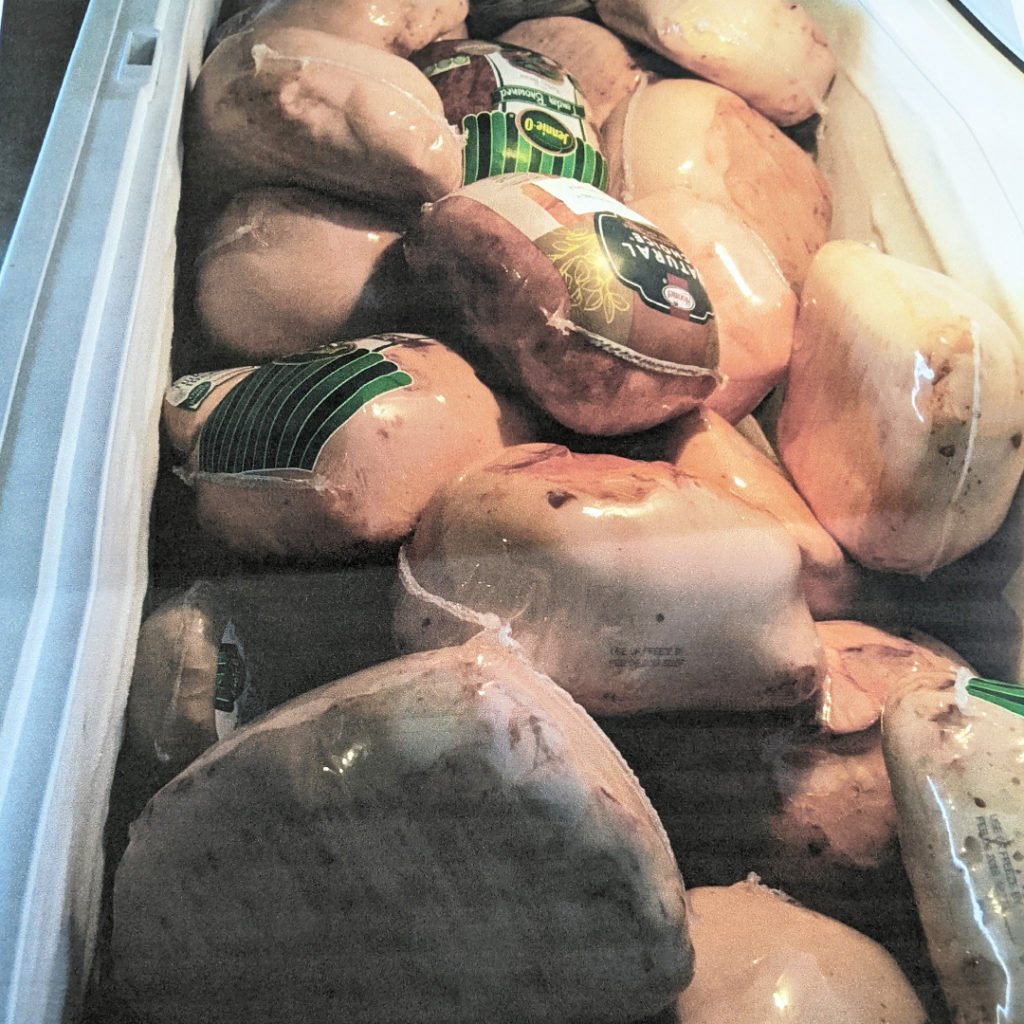
In 2019 the ministry expanded further. Parishioner Katie Jensen, a nurse making home visits, discovered that it is not uncommon to find people living without essential household items. She went to Father Oestreich seeking a way to help.
Within a few months they opened the Works of Mercy Center in Graceville, Minnesota, where all are welcome to pick up clothing, baby supplies, hygiene products, furniture and more.
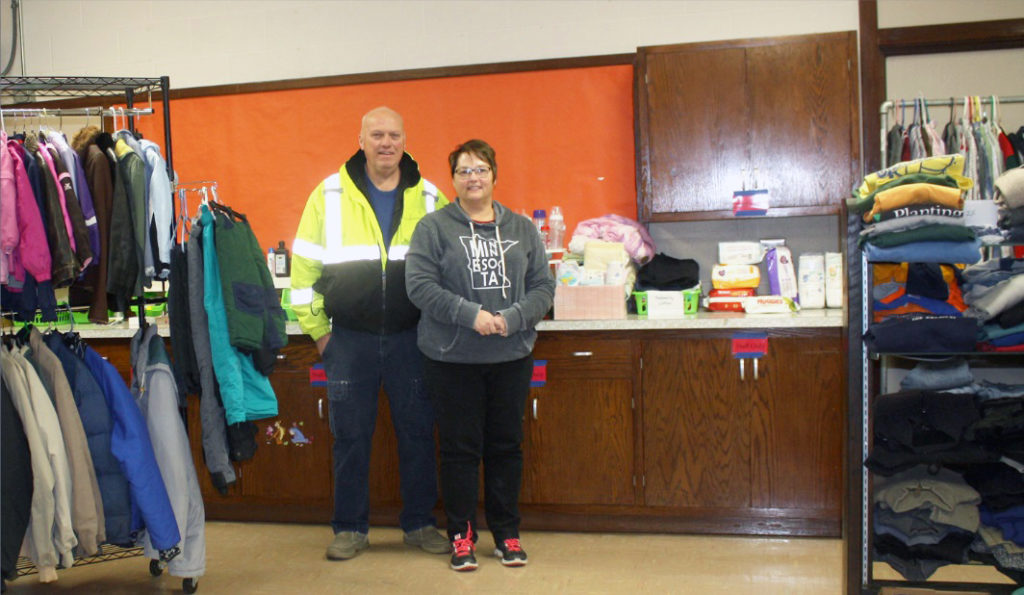
Upholding the dignity of every person
These works of mercy have revitalized the parish.
The people of the Spirit of Life Area Faith community see the face of Christ in all whom they meet: the elderly person living on a fixed income; the woman with no mattress; the Latino migrant farm worker arriving to the area with nothing more than the clothes on his back; and Native American families living on the nearby reservation, where generational poverty and substance addictions are all too common.
No person is “beyond the pale” when it comes to mercy.
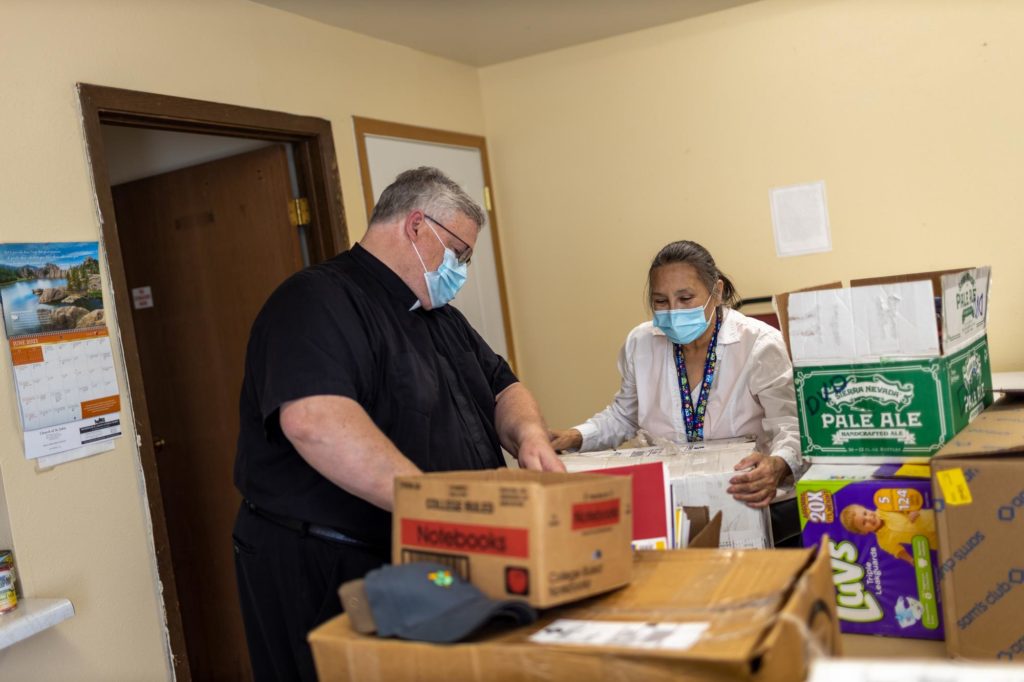
Father Oestreich’s role models are as diverse as the communities he serves. He keeps four portraits in his office: Dorothy Day, Gandhi, St. Pope John XXIII, and Óscar Romero.
Their works offer him a universal perspective: “We don’t judge, we don’t ask questions,” he said.
If people are hungry we feed them, if they are naked we clothe them. Everything is a gift from God.”
He ensures that everyone involved—ranging from middle school students in religious education classes to retired volunteers— knows that they were not simply donating and volunteering.
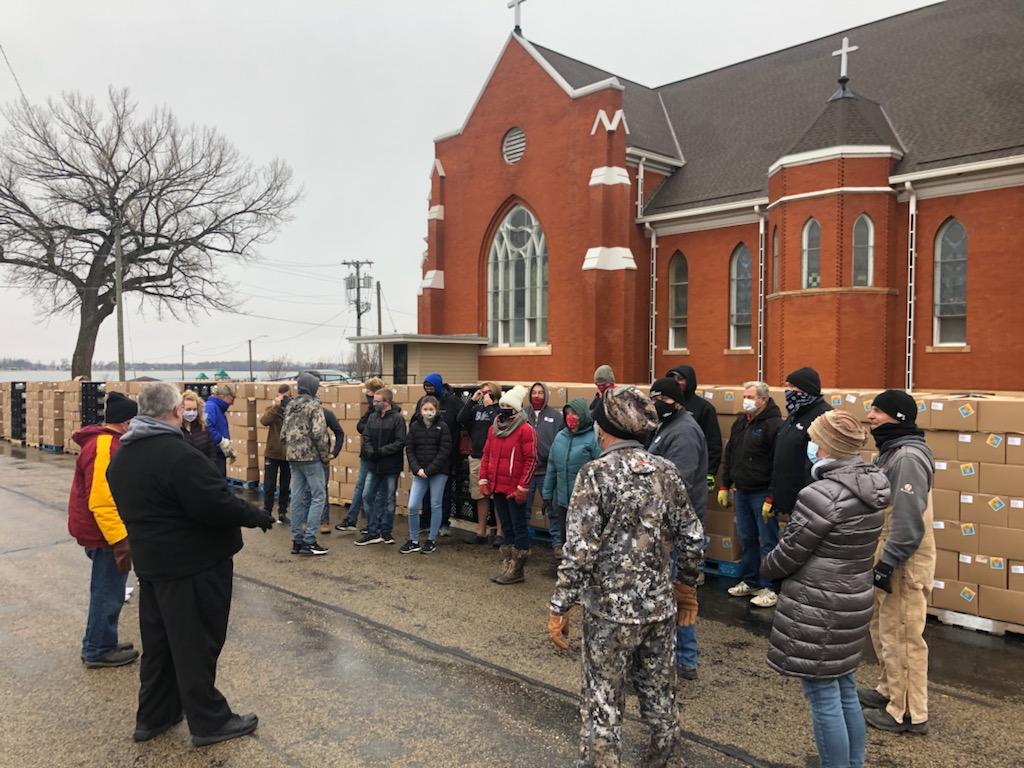
“I’ve instilled in them their call through their baptism to do the good works of Christ and the corporal works of mercy,” he said. “I think that’s the best thing of all: to teach by example and bring the Church to where the people are.”
Catholic Extension Society is honored to share the accomplishments of Father Brian Oestreich, a finalist for the 2021-2022 Lumen Christi Award. Visit this page to read the other inspiring stories from this year’s finalists.


